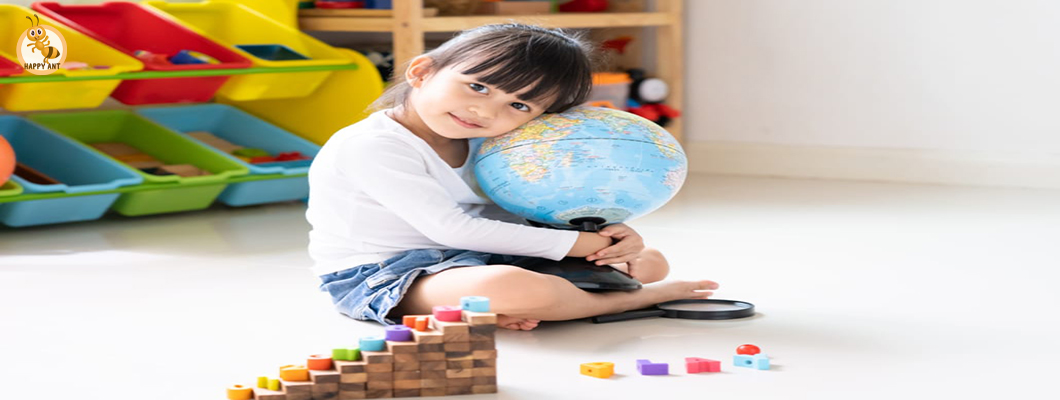
مقدمه
این مقاله به بررسی تأثیر دوزبانگی روی شخصیت کودک می پردازد. بر اساس نظریه ی محققان در شرایط مدرن امروزی، تنوع زبانی و تأثیر زیاد زبانهای گوناگون و تسلط بر چندین زبان، شرط اساسی برای رشد تفکر و تضمینی برای گفتوگو در جوامع مختلف است.
معرفی
در دنیای مدرن امروزی و گسترده شدن نوآوری های جهانی، افراد با توجه به وجود جوامع چند فرهنگی و فضای چند زبانه در کشور ها، برای زندگی و اشتغال و کسب درآمد به چالش کشیده می شوند. در این راستا، زبان به عنوان یک ابزار ارتباطی منحصر به فرد برای توسعه ی ارتباطات جهانی بین فرهنگها و کشورهای مختلف و برقراری روابط بین المللی بسیار کارآمد می باشد. با توجه به تنوع زبانی و تأثیر متقابل زبانهای مختلف، دانش چند زبانگی یک نیاز ضروری و تضمینی برای گفتوگو در جوامع مختلف است.
تأثیر دوزبانگی روی شخصیت کودک
زبان یکی از اساسی ترین پایه های فرهنگ و وجود انسان است. یکی از اساسی ترین جنبه های وجودی انسان در محیط چند قومیتی، مشکل درک است. برای دوزبانگی، نقش خانواده به عنوان مهم ترین عامل برای شکلگیری تفکر دوزبانه می باشد. در فرآیند فراگیری زبان دوم تغییراتی در ساختار آگاهی کودک رخ می دهد. در شرایط کنونی عواملی که باعث می شود تا افراد نیاز به تسلط بر زبانهای خارجی داشته باشند، عبارتند از: جهانی شدن، انواع مهاجرت، چندفرهنگی بودن در کشورها، ازدواجهای بین قومی.
"دو زبانه بودن فردی" یا "دو زبانگی" بیانگر
این است که فرد به بیش از یک زبان به عنوان ابزار ارتباط اجتماعی دسترسی دارد.
برای شناخت یک فرد به عنوان دوزبانه، ابتدا باید به این نتیجه برسیم که معیار دوزبانگیرا نباید فقط در توانایی صحبت به زبان دوم جستجو کرد بلکه توانایی فکر کردن به زبان دیگر نیز بسیار مهم است. معیار توانایی تفکر در یک زبان در واقع توانایی جمله بندی یا نویسندگی در آن زبان است در حالی که ترجمه بر روی متونی انجام می شود که قبلاً نوشته شده است. فرآیندهای ذهنی و فهم و دلالت از نشانه های دوزبانگی است.
طی تحقیقاتی رابطه ی بین تفکر و زبان به تفصیل بررسی شده است که چگونگی یادگیری و تفکر یک کودک خردسال به زبان دیگر را تجزیه و تحلیل میکند. اول کودک یاد میگیرد که با صدای بلند به زبان دیگر صحبت کند و پس از آن یاد میگیرد که در سکوت به آن زبان فکر کند. به دست آوردن توانایی فکر کردن مستلزم زمان و تلاش است و شرط لازم برای تسلط بر این توانایی این است که فرد ابتدا یاد بگیرد که به آن زبان صحبت کند و صحبت دیگران را نیز درک کند. زبان و تفکر یک کل هستند و دوزبانگی به تطبیق پذیری تفکر، کمک می کند. در این مورد خانواده به عنوان اولین و مهمترین عامل در تأثیر دوزبانگی بر شخصیت کودک عمل می کند.فراگیری زبان و دوزبانگی الگوهای رفتاری معینی را در روابط با افراد خانواده و محیط اجتماعی شکل می دهد. یکی از عوامل تعیین کننده برای شکل گیری دوزبانگی و چندزبانگی در جامعه خانواده است. بنابراین شکل گیری زبان تا حد زیادی بستگی به عملکرد آموزشی دارد که شرایط آن توسط خانواده فراهم می شود. خانوادهها برای اقدام به دوزبانه شدن کودک خود، روش های متفاوتی را پیاده سازی می کنند که هر کدام از این روش ها تأثیرات متفاوتی دارند. به عنوان مثال گروهی از خانواده ها به کودکان خود استقلال کامل و آزادی در تصمیم گیری برای مطالعه ی زبان ها را می دهند. آن ها اینگونه با کودکان خود رفتار می کنند که «اگر می خواهی، زبان دیگر را یاد بگیر و اگر نمی خواهی یاد نگیر». آن ها بر این معتقدند که"بگذار خودشان تصمیم بگیرند".
ایجاد علاقه به دوزبانگی را در کودکان نباید تحمیل کرد اما سازماندهی آموزش زبان در خانواده از جمله زبان مادری مستلزم وجود مواجهه ی دائمی کودک با زبان و همچنین هدفمندی و پشتکار کودک یا زبان آموزان و والدین است که تنها در این صورت میتوان به دوزبانگی قابل قبول در کودکان و زبان آموزان رسید. توانایی فرد برای تسلط بر چندین زبان، به او اجازه میدهد تا آزادانه ارتباطات بین فردی و حرفهای برقرار کند. کودکان گاهی ممکن است نیاز به اجبار داشته باشند زیرا اگر به آن ها حق انتخاب داده شود همه ی آن ها امتناع می کنند. ایجاد شرایط برای تسلط کودک بر زبان ها در فضای خانواده و مؤسسات آموزشی، یکی ازعوامل مؤثر در تأثیر دوزبانگی بر شخصیت کودک است.
اگرچه به نظر می رسد تصمیم گیری در مورد فراگیری زبان دوم در کودکان با خانواده است اما تحمیل این وظایف فقط بر عهده ی مؤسسه ی آموزشی که با آموزش زبان سروکار دارد اشتباه است. در واقع وقتی بهترین تعلیم و تربیت از طریق تأثیرگذاری والدین و سایر اعضای خانواده بر فرزندان شکل می گیرد، برای دوزبانگی کودک هم نباید این عامل تأثیرگذار را فراموش کرد. پیشنهاد می شود مقاله مرتبط با موضوع نقش کارتون در فرهنگ اجتماعی را نیز مطالعه بفرمایید.
"رویکرد نظام
مند جهت تسلط بر دوزبانگی، از طریق تعامل خانواده، آموزش و پرورش و جامعه اجرا می
شود. در این صورت بازخورد آن چند برابر می شود و نتیجه ی مؤثری به همراه دارد."
نتیجه گیری
می توان با توجه به مطالعات انجام شده به این نتیجه رسید که بین تسلط کودک بر زبان و شکل گیری تفکر کودک ارتباط مستقیم وجود دارد و می توان از آن به عنوان معیاری برای دوزبانگی استفاده کرد. وقتی فردی تسلط بر زبان دوم را به دست میآورد، توانایی بیان یک فکر را با ساختن صحیح جملات در آن زبان، بدون توجه به زبان اولش ایجاد میکند. بنابراین، مهم ترین معیار برای فراگیری زبان دوم در سنین پایین در محیط خانواده است.
دانستن دو
زبان و دو فرهنگ، باعث شکل گیری شخصیت و فرهنگ شخصی فرد می شود و افق جهان بینی
او را گسترده می کند و به طور کلی به رشد کامل شخصیت کمک می کند. در نهایت تأثیر
دوزبانگی بر شخصیت کودک و شکل گیری آن یک بررسی عمیق از نظر فلسفی است.

نوشتن نظر